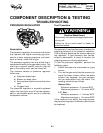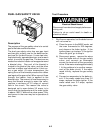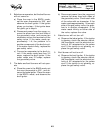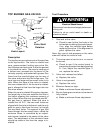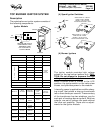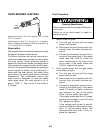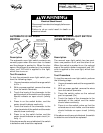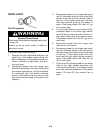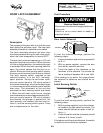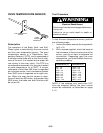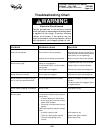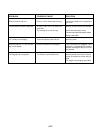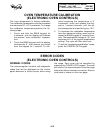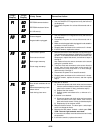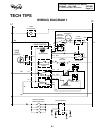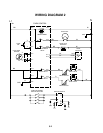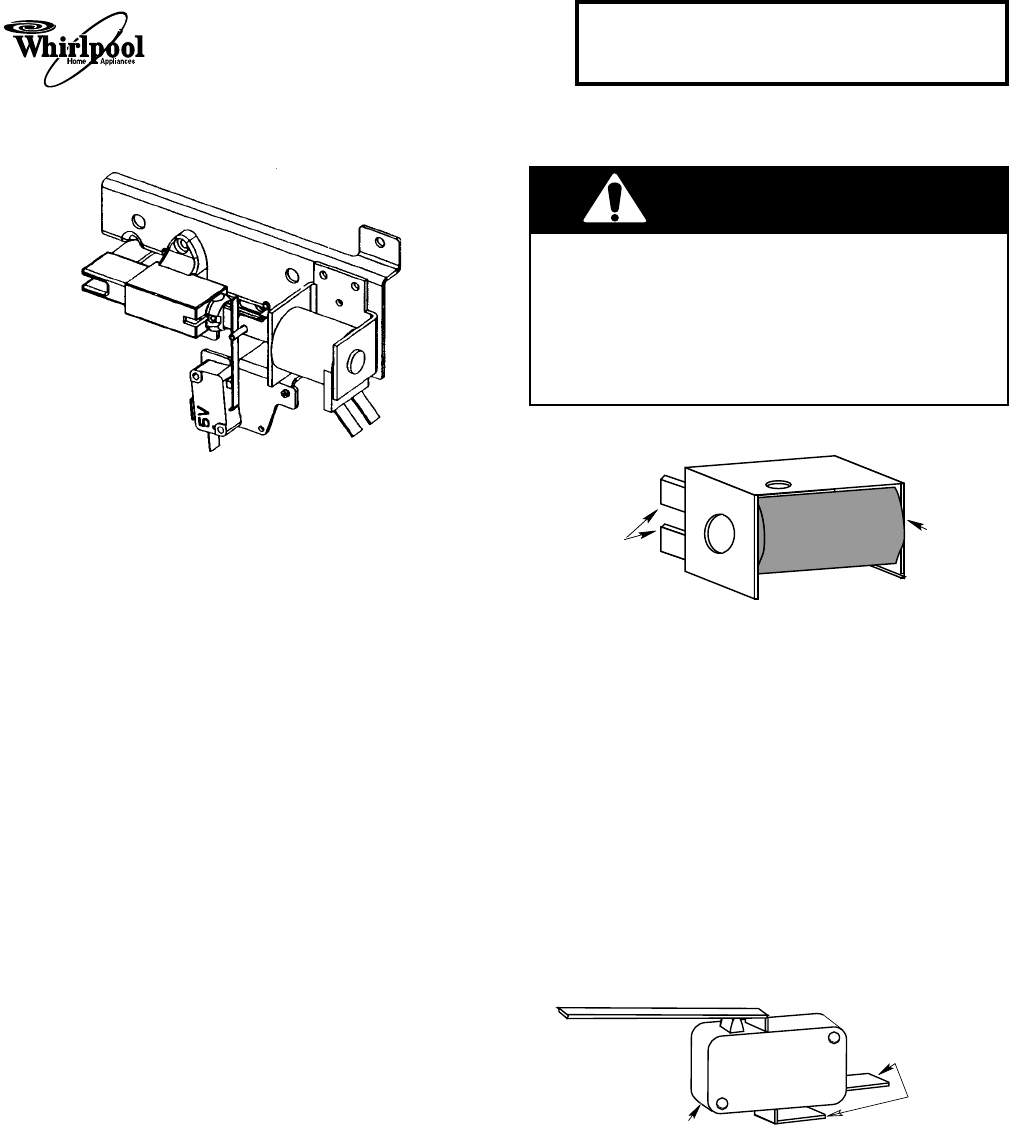
Page 4-9
4-9
Cooking Products Service Manual
Original July, 1996
4321891
© 1996 Whirlpool Corporation
Door Latch Solenoid
To test the solenoid windings, perform the
following steps:
1. Use an ohmmeter and set the range switch
to R x 1.
2. With no power applied, remove the wire
from either solenoid terminal.
3. Touch the leads of the ohmmeter to the
terminals of the solenoid. You should ob-
tain a reading of between 45 Ω and 65Ω.
If the reading is not within the range shown,
the solenoid is defective and should be re-
placed.
Latch Sensing Switch
SWITCH
TERMINALS
COM
NO
NC
To test the latch sensing switch, perform the
following steps:
1. With no power applied, touch the ohmme-
ter leads to the two switch terminals. The
meter should indicate an open circuit (in-
finity ∞).
2. Close the switch and the ohmmeter should
indicate 0 Ω (short circuit).
If the above results are not obtained, the switch
is defective and should be replaced.
SOLENOID
TERMINALS
Electrical Shock Hazard
Disconnect from electrical supply before ser-
vicing unit.
Failure to do so could result in death or
electrical shock.
WARNING
Test Procedure
DOOR LATCH ASSEMBLY
Description
The purpose of the door latch is to lock the oven
door during the self-clean cycle. The door latch
assembly consists of a solenoid and a switch.
The latch assembly prevents the oven door
from being opened during the self-clean cycle,
when the oven temperature is above 600˚F.
The door latch solenoid operates on a 120-volt
dc pulse from the oven control. When the door
is in the unlocked position, the solenoid plunger
is extended. When the latch sensing switch is
open, the control senses that the door is un-
locked. When the latch sensing switch closes,
the oven control senses that the door is locked.
The latch sensing switch, mounted on the
solenoid bracket, is in the N.O. (normally-
open) position. During the self-clean cycle,
the oven control sends a 120-volt dc pulse to
the solenoid windings, which pulls the plunger
in, and moves the latch actuator rod to lock the
oven door. The movement of the rod also
activates the latch sensing switch and closes
it. When the self-clean cycle is over, and the
oven temperature reaches approximately 600˚,
the oven control sends a 120-volt dc pulse to
the solenoid, the plunger is pushed out, the
latch actuator rod releases the door and un-
locks it, and the sensing switch opens. There
are no adjustments for the latch.



